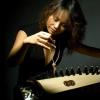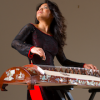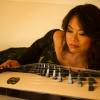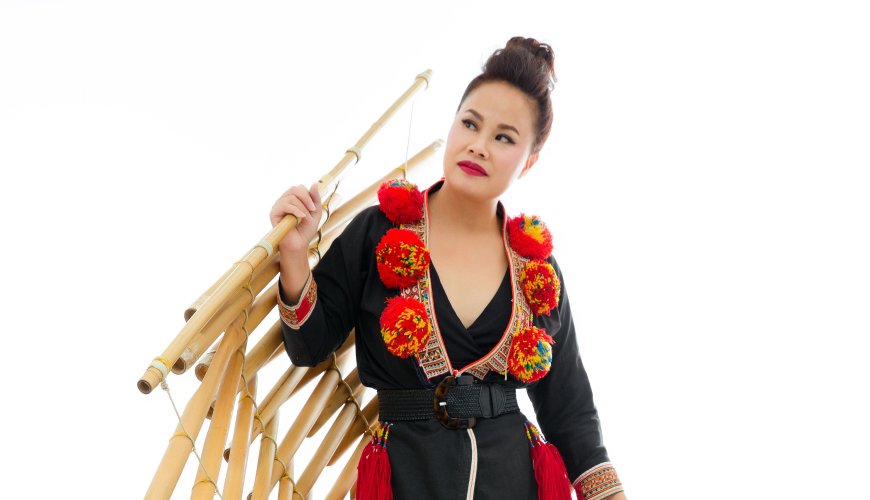
Award-winning multi-instrumentalist Vân-Ánh Võ and her genre-crossing ensemble the Blood Moon Orchestra are set to take the stage during the Yerba Buena Gardens Festival’s Viet Day event, celebrating Vietnamese-American culture and the 50th anniversary of the end of the Vietnam War.
The Aug. 2 celebrations are open to the public and free to attend. They are slated to include cultural exhibitions, traditional Vietnamese food, and musical performances. 12-year-old Vietnamese-American rap artist Le Gianna will perform as a special guest artist, and celebrity chef Nikki Tran will be in attendance.
“This Viet day will be the first time ever that the community audience will be able to experience Vietnamese culture in [multiple] dimensions,” said Võ, the founder and artistic director of the Blood Moon Orchestra. “When you talk about Vietnamese culture, you have to talk about food, music, and language.”
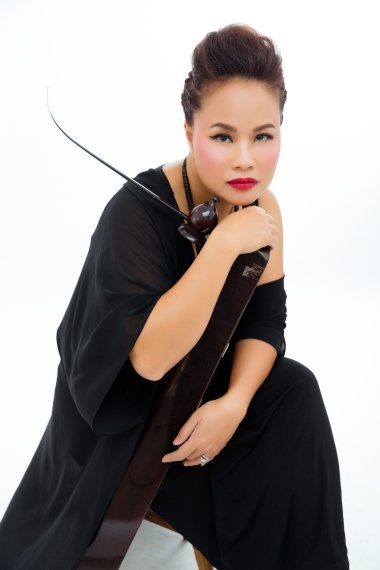
The Blood Moon Orchestra, a self-described “global music collective,” combines traditional music with contemporary art forms like breakdancing and rap, paying homage to the artists’ roots while pushing the boundaries of classical performance.
Võ herself is skilled in seven traditional Vietnamese instruments, including the “đàn bầu” (monochord), the “đàn t’rung” (bamboo xylophone), and the “đàn tranh” (zither), the instrument she is most known for.
The multi-instrumentalist received a formal education in traditional music at the National Academy of Music in Hanoi, Vietnam, but said her interest in learning the history of the music went beyond what was taught. To gain a more comprehensive understanding of the music she sought out acclaimed masters of traditional Vietnamese music and studied under them, picking up new instruments along the way.
Võ’s multifaceted work as a solo artist provides the foundation for her genre-defying Blood Moon Orchestra. The orchestra draws from traditional roots while also taking inspiration from contemporary and cross-cultural sounds, all with a focus on community advocacy.
“I can play traditional music from Vietnam, but then for a rapper to rap with me, and for a breakdancer to dance with me, that is where I [can] light everything up,” she said. “And the end result is that we want to share [our] differences so that we can understand more [and] work together.”
Võ said making music for local Bay Area communities is important to the Blood Moon Orchestra’s mission. Although she and her ensemble have performed on some of the largest stages for American musicians — including Carnegie Hall, the Kennedy Center and a solo performance by Võ on NPR’s Tiny Desk series — she said she never plans to stop hosting free concerts like the upcoming Viet Day performance.
She recalled a performance with the Blood Moon Orchestra in partnership with Stanford Live, and said that members of her community were hesitant to attend because ticket prices made the event seem like a luxury, and as such that they “didn’t belong.” To account for this, Võ said she often asks venues to provide reduced-price or free tickets for members of Vietnamese-American communities.
When Võ cannot reach her community members through performances, she said she tries to bring the music to them directly. For example, Võ teaches music workshops at the Vietnamese Educational and Cultural Association (VECA) in Hayward, CA. Student performers from VECA and the Au Co Vietnamese Cultural Center will play an opening set at the Viet Day event before the Blood Moon Orchestra takes the stage.
Võ said she hopes the Viet Day event will allow attendees to experience a more-nuanced Vietnamese culture, and take them beyond typical, two-dimensional associations like "Vietnamese nail salons or pho.”
“Even though this year [is] the 50-year anniversary that the Vietnamese have been [in] America, we still are considered ‘fresh off the boat,’” Võ said.
She said that this prolonged immigrant status in the Bay Area has often left her local Vietnamese-American communities without an outlet for cultural artistic expression, like traditional music. Her hope, she said, is that her work as a musician will bring her communities together across generational and cultural boundaries and uplift Vietnamese-American voices.
“I use my art to uplift the community, to share our community’s voices and develop the traditional art to preserve it,” she said. “I don’t just want to play songs that my masters already played. I want to play songs that appeal to the younger generation so that they can continue to carry on that tradition.”


